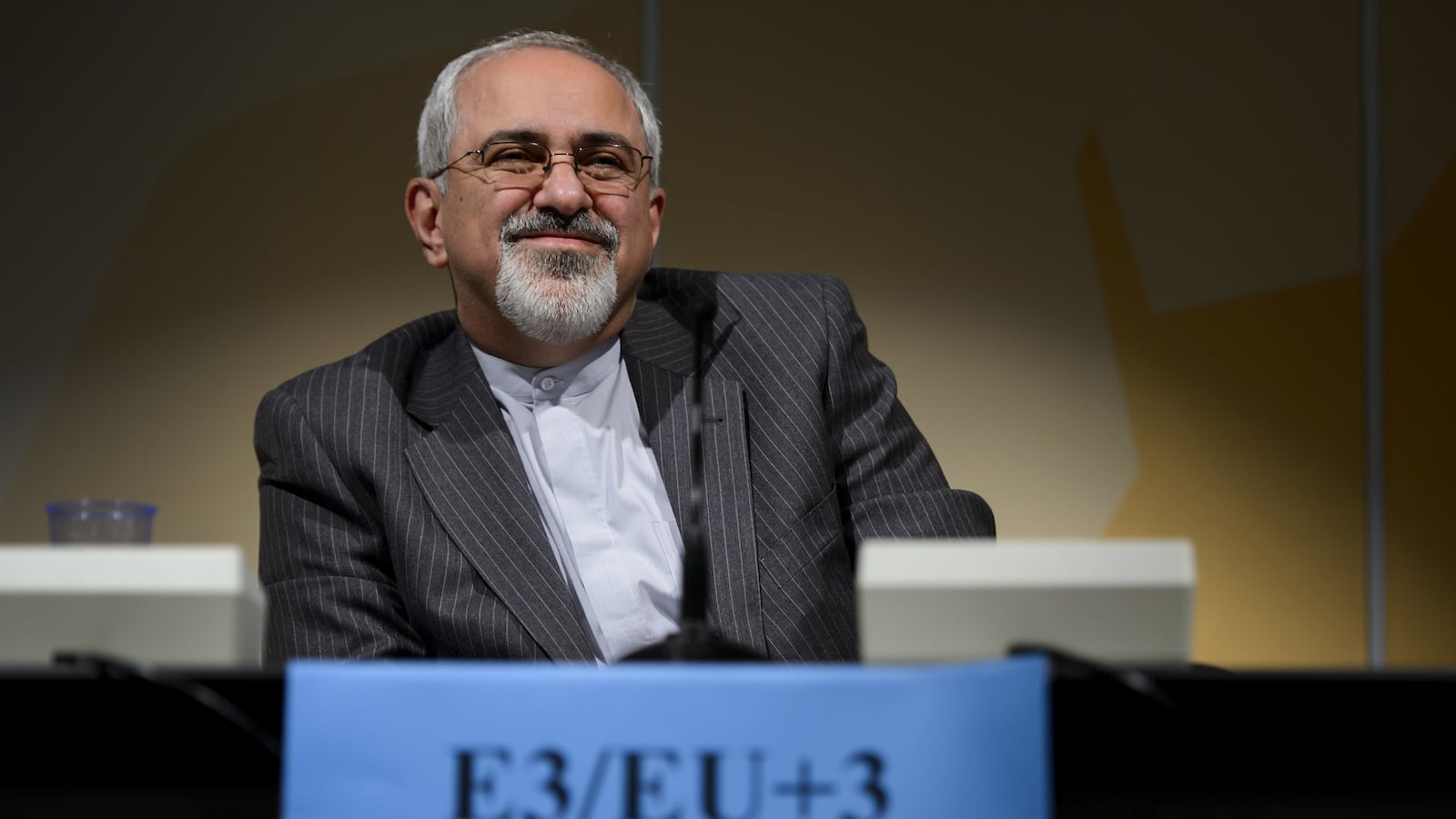The P5+1 negotiations in Geneva ended last week on a positive note, with White House spokesman Jay Carney announcing to reporters that the Iranians had presented “a new proposal with a level of seriousness and substance that we had not seen before.” E.U. High Representative Catherine Ashton referred to the talks as “very intensive and very important” and Iranian foreign affairs minister Mohammad Javad Zarif expressed hopes for the “beginning of a new phase” in relations between Iran and the West.
This latest round of negotiations, which will resume November 7, seems to have included serious discussion about the so-called “additional protocol”―the implementation of snap inspections of nuclear facilities―although an Iranian negotiator denied that his delegation had accepted the protocol. In fact, for all the optimism expressed by the parties involved, little, if any, tangible progress has been made. In May of 2012, after the collapse of negotiations in Baghdad, the very same Baroness Ashton told reporters that negotiators had found “common ground” and―familiarly―referred to the process as “very intense and detailed.”

The 2012 talks crumbled after the P5+1 (known in Europe as the E3+3) offered what Iranian negotiators saw as an uneven compromise: Western negotiators wanted Iran to stop enriching uranium to 20 percent, to ship all such medium-enriched uranium out-of-country and to close the Fordow enrichment facility. The P5+1 insisted on these concessions before it would reciprocate by offering medical isotopes, peaceful nuclear cooperation and commercial aircraft parts. The chief Iranian negotiator, Saeed Jalili, then characterized uranium enrichment as an “irrefutable” right.
If the Iranians do actually accept the additional protocol, it will signify a major breakthrough. A Western compromise on uranium enriched to 20 percent would represent a parallel development. To allow Iran to keep its stockpile of more than 180kg of medium-enriched uranium would be more than enough to infuriate Israeli Prime Minister Benjamin Netanyahu, who has said that Israel will not tolerate an Iranian stockpile of greater than 250kg. Permitting Iran to continue uranium enrichment, even under supervision, would be a slap in the face to Israeli and American hard-liners.
As well it should be: the process of enriching uranium to 20 percent actually does the vast majority of the work necessary to create weapons-grade uranium. From 20 percent, it's a hop, a skip and a jump to 90 percent. It's easy to see why the demands of earlier Western negotiators were so seemingly ruthless: the only real way to ensure that Iran does not manufacture weapons-grade uranium is to verify that there is no enrichment going on, and, for good measure, to make certain that there is no medium-enriched uranium around at all.
Nevertheless, the Non-Proliferation Treaty (NPT), to which Iran is a party, guarantees the right to peacefully use nuclear technology, and it is difficult for American or European negotiators to argue that this right should be contingent upon the West's willingness to provide the material and equipment necessary to exercise it. Thus, these negotiators are in a tough rhetorical spot: believing that the Iranian leadership is seeking a nuclear weapon, they have found themselves making demands of Iran that contravene the legal principles they are supposed to be defending.






